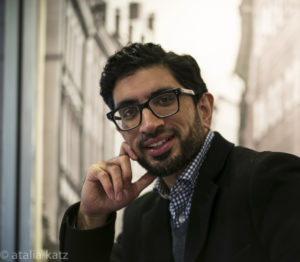
Debates: A Way to Teach Controversial Topics in Islam
These days, Islam is no stranger to controversy. Although we may deplore the mainstream media’s deliberate sensationalization of Muslim conflicts, as professors we can also exploit conflict in the classroom to help our students achieve their learning objectives. Many of my colleagues in other departments use debates as a pedagogical strategy. Last semester, I tried this approach in my introductory course on Islam. The assignment went extremely well. The sophistication of the arguments and the level of student engagement exceeded my expectations. I now plan to assign debates in other courses as well.
At Lafayette College, like most liberal arts colleges, students expect to be engaged in class. Debates provoke student involvement and (ironically) foster a collaborative classroom culture. They inspire students to think rationally and critically about a topic in order to argue for a particular position (even if they personally do not hold that position). Ideally, they strive to make the best and most persuasive argument possible. Some additional benefits include: providing a dynamic forum to explore real-world topics and issues; encouraging self-reflection and learning from peers; and enabling participants to become more comfortable expressing their opinions publicly.
Debates also enable interdisciplinary thinking. The following five positions my students debated in class connect Islam to ethics, law, politics, and culture:
- The Mainstream U.S. Media Treats Muslims Fairly
- ISIS is Islamic
- Islam values Freedom of Expression
- The hijab (headscarf) is a Sign of Female Oppression
- Islam is compatible with American (Western) Values
For each of the five positions, one team argued in favor of the position, while the opposing team argued against it. For example, one team argued that ISIS is Islamic and the opposing team argued that ISIS is not Islamic.
Students formed teams of (at most) 3 people and participated in one debate over the course of the semester. I scheduled the debates to coincide with the week’s specific theme. Each team met outside class to discuss their approach, refine arguments and rehearse their presentation. They also consulted a wide range of sources: books, journal articles, encyclopedia entries, newspaper and magazine articles, and national surveys. During the presentation, every member participated, spending (roughly) equal time speaking in front of the class. After each team made their arguments for and against the position, (at least) one member from each team was elected to make a rebuttal of the other team’s arguments. The chart below details the timeline for each debate:
After the completion of the rebuttals, the classroom audience of student peers had an opportunity to engage in discussion with both teams: to ask further questions, make objections, or contribute opinions.
In the spirit of friendly competition, the class then voted and decided which team made the better argument – not which position they happened to favor personally. I encouraged students to evaluate and vote for the winning team based on the following rubrics:
- Clarity of information
- Logical Flow of argument
- Credibility of Sources
- Strength of Rebuttal
- Rhetorical Strategies
- Overall Persuasiveness
- Presentation Style (eye contact, tone of voice, body language etc.)
- Balance of Team Participation
- Respect for the other team
“Our group projects and debates facilitated a holistic learning experience,” remarked one student in an evaluation, while another stated the “debates were great opportunities to see multiple sides of the same issue and try to see where different sides are coming from.” These comments echo some of the most important pedagogical objectives of my courses. I want my students to engage the study of Islam (and religion) as a dynamic intellectual enterprise.
